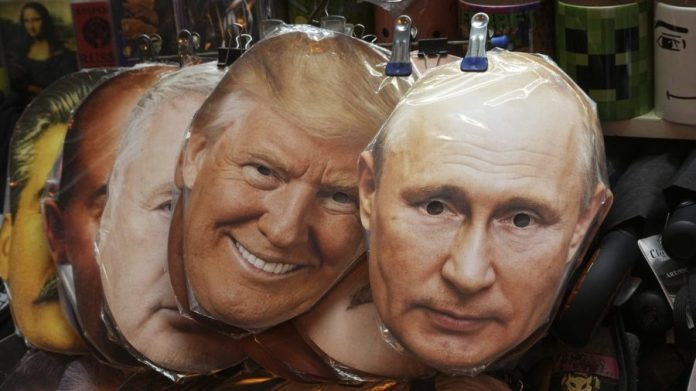
President Trump, hostile to law at home or abroad, hopes to win a Nobel Peace Prize by giving parts of Ukraine to Russia to end the war there.
He would arrange this by meeting Russian President Vladimir Putin in Alaska, on American soil, flouting the finding of the International Criminal Court that Putin is a war criminal and must be arrested wherever he sets foot. Unlike the 125 countries that accept the ICC’s jurisdiction, the U.S. does not recognize the court and has even tried to punish its officials for indicting Trump’s friend Israeli Prime Minister Benjamin Netanyahu for war crimes.
Another Republican president, Herbert Hoover, faced a problem similar to that posed by Russia’s war on Ukraine. In 1931, Japan invaded Manchuria, officially part of China but coveted by Japan for its resources.
The U.S. was not prepared to intervene militarily, but Secretary of State Henry L. Stimson announced in 1932 that the government would not recognize any political or territorial change accomplished by force. Hoover’s U.S. did not belong to the League of Nations, but most League members endorsed what became known as the Stimson Doctrine. Japan, however, denounced these happenings and withdrew from the League in 1933.
The Stimson Doctrine did not stop the invasion of China, but it helped build broad recognition of Imperial Japan’s threat to global order. The doctrine shaped U.S. and European refusal to recognize the Soviet takeover of Estonia, Latvia and Lithuania in the 1940s. When the three small Baltic nations finally broke free of Soviet rule in 1991, the U.S. and its partners immediately recognized their independent statehoods.
The United Nations Charter, signed by Russia as well as the U.S., also bans trans-border aggression, prohibiting the threat or use of force against the territorial integrity or political independence of any state.
In 1994, Russia, the U.S. and the United Kingdom signed the “Budapest Declaration,” which banned them from threatening or using military force or economic coercion against Ukraine, Belarus and Kazakhstan, “except in self-defense” or otherwise in accordance with the U.N. Charter. As a result of this declaration and other agreements between 1993 and 1996, Belarus, Kazakhstan and Ukraine gave up their Soviet legacy nuclear weapons.
When Russia violated that commitment by invading Ukraine in 2014, the U.S., U.K. and France provided Ukraine with financial and military assistance and imposed economic sanctions against Russia but ruled out direct intervention with their own forces.
Trump now follows the calamitous “might makes right” precedents set at Munich in September 1938 and Yalta in February 1945. At Munich, leaders of the U.K., France and Italy authorized Adolf Hitler to seize a key region of Czechoslovakia in order to achieve “peace in our time” — only to open the door to Nazi aggression soon after. At Yalta, a dying Franklin D. Roosevelt and Winston Churchill consigned Eastern Europe to the USSR in return for Stalin’s empty promises of free elections and democracy.
As David E. Sanger and Luke Broadwater recently put it in the New York Times, Yalta symbolizes what can go wrong when great powers carve up the world: “smaller powers suffer the consequences and free people find themselves cast under authoritarian rule.” It is noteworthy that although FDR valued his alliance with Moscow, the U.S. stood by the Stimson Doctrine in the Baltic region.
Ukrainian President Volodymyr Zelensky bristles at both the suggestion of ceding territory and the prospect of talks being held without Ukraine. “Any decisions made against us, any decisions made without Ukraine, are at the same time decisions against peace,” he said. They will never work — Zelensky said that Ukraine “will not give Russia any awards for what it has done.”
For Trump, however, what counts are facts on the ground. Brought up to date by his emissary Steve Witkoff — a dilettante with zero knowledge of Russia — Trump believes that Putin still holds the cards. Some experts, to the contrary, believe that the only way Putin does not eventually fold is if he is rescued by Trump.
Trump is an unreliable partner for Ukraine and potential plaything for Putin to flatter and manipulate.
Walter Clemens is an associate at the Harvard Davis Center for Russian and Eurasian Studies and professor emeritus of political science at Boston University. He is the author of “Blood Debts: What Putin and Xi Owe Their Victims” (2023) and “The Republican War on America: Dangers of Trump and Trumpism” (2023).

